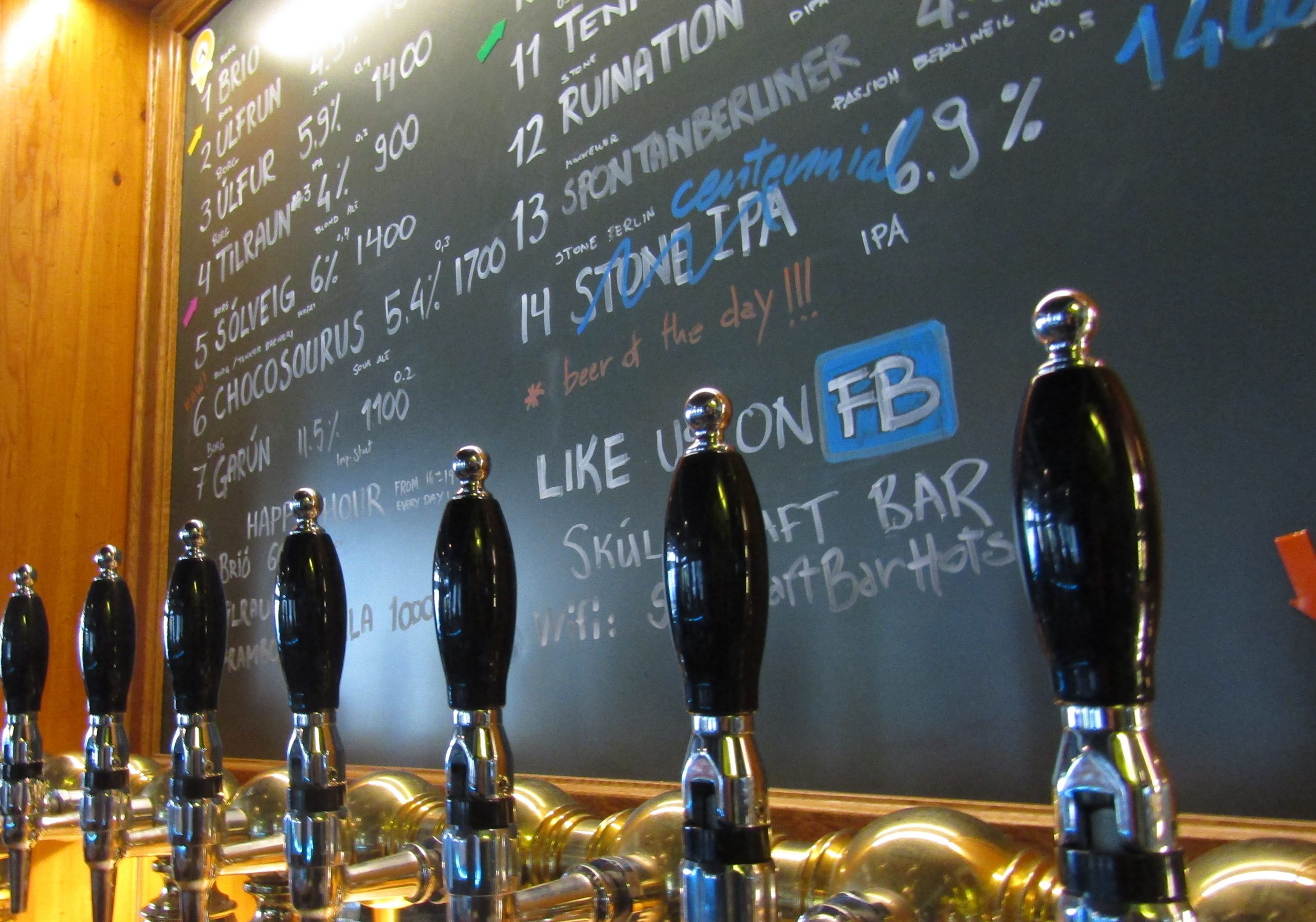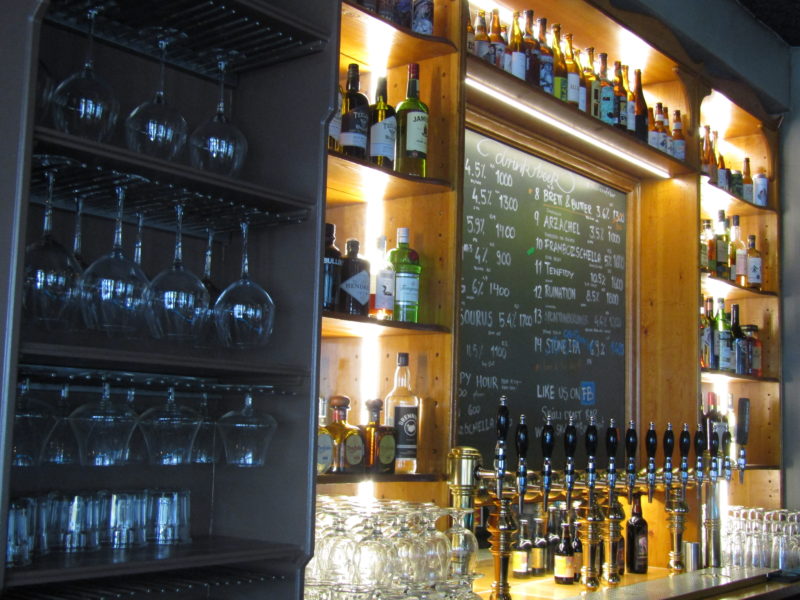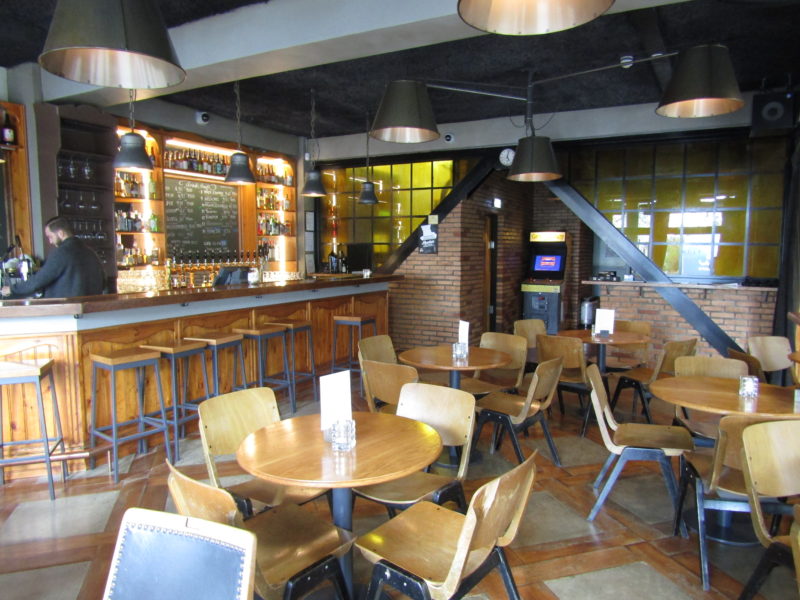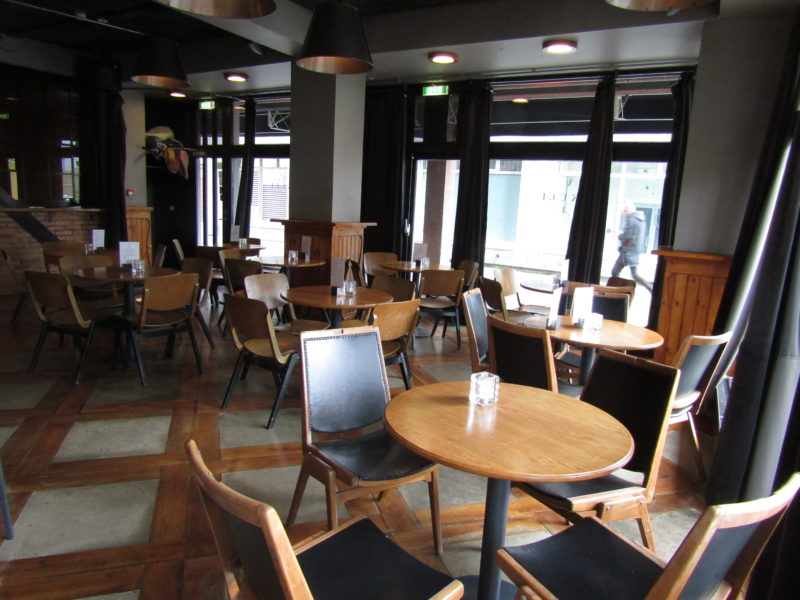


During a trip to Iceland, BevSpotter Stephen Ngo had the opportunity to chat with Víkingur Kristjánsson, the general manager of Skúli Craft Bar.
Skúli has been open in Reykjavík since December of 2015. About a year and a half ago, the bar shifted focus to specialize in craft beer, which has quickly become popular in the country. Working with multiple local breweries as well as renowned brands abroad, Skúli has developed a solid reputation among both residents and tourists alike for their beer program.
In his conversation with Víkingur, Stephen was able to explore how the craft beer market presently looks within Iceland in relation to the States and observe how it is continuing to develop.
The following has been edited for clarity.
We serve a variety of craft beers from Iceland, Europe and the United States. Because we’re an independent bar, we aren’t exclusive to any of the big brands, and get to work with the product that we like. That means we can explore partnerships with a lot of different brewers.
Right now, we have a big collaboration with the Borg microbrewery here in Reykjavík. They have helped us since the beginning and we’ve been doing collaborations together like tap takeovers. We also feature seasonal craft beers through them.
We’re also a certified Stone bar in Iceland, so we always have a nice selection of Stone on draft. We work a little more with Stone Berlin at the moment. They’re doing great things. Some say they’re maybe better than San Diego, but it’s the same company. [laughs] They are one of our favorites.
We don’t serve food for now, because of the lack of space that we have. We are more of a pub than a bar. We just invested in a food truck.
Exactly. For this summer, we’re going to try to have food outside the bar, but you can eat it inside too. Hopefully, it’ll be a good summer. Sometimes it’s difficult to hope for nice weather in Iceland, but we do get it sometimes. [laughs]
We do about 50/50, 50% international and 50% Icelandic. Lately, we’ve been working more with Borg and less with other breweries. But now, the craft brewery scene is Iceland is growing really fast. So we recently made the decision to be more open to other breweries as well, even if they aren’t as recognized as Borg.
For example, we just began working with two other Icelandic breweries: the Brothers Brewery from Vestmannaeyjar (or Westman Islands) and Ölvisholt Brewery, which is just outside Reykjavík.

Really fast within the last year and a half. Five years ago, we had a really big boom of craft cocktails. Everyone started to make them and we had cocktail bars opening in Reykjavík. They were a fine-dining style if you know what I mean. From there, the interest of the customer started to develop and change. They wanted more. The beer trend started to follow it really fast.
It’s still an issue that you’re not allowed to brew at home.
What makes the beer world fantastic in the States is that everyone is brewing at home. You can go somewhere and try some beers from someone else. In Iceland, it’s not legal to do it.
It’s actually a bit of a gray area. You can do it as long as you don’t sell it. But, you have to get a certificate and license to sell it. You have to start a company. It’s a big investment, especially if you’re just two buddies who brew their own beer in the basement.
Now, we have three new breweries in Iceland that we’re going to collaborate with this summer.
We have two big breweries in Iceland. They are like Budweiser in the States.
Yeah. We have Gull, which is from Ölgerðin. They are the biggest distributor in Iceland. They distribute products like Pepsi. They are also the father company of Borg. They started the Borg microbrewery that followed up on their initial concept.
Then you have the other company that produces Viking, which is Vífilfell. They also produce beers like Thule.
Then you have a third one that is closely followed by the craft beer world and getting better and better, which is Kaldi. They are based in the north of Iceland. They brew lager, dark lager, and IPA. They brew porter as well sometimes. They do quite good stuff.
Then, you have Gaedingur, which also owns a beer bar here in Reykjavík called Micro Bar. Really good guys over there. We’re really good friends and we collaborate a lot. They do good stuff as well. Those are the brands that are known at the moment.
Now, our friend, Magnus, is opening a guesthouse/brewery/pizzeria. You can go there, have pizza, and try their beers. You also have a brewery opening down in the south of Iceland. There are just more and more. Putting all of those together is starting something.

Yeah, 100%. They are more interested in it.
For them, the beer is not just a beer. They look for a certain standard and quality in what they are drinking. We’re still fairly new to that in Iceland.
Alcohol was banned until 1989. We always had breweries here in Iceland, but it was more that it wasn’t legal, so you tried to brew at home to have some alcoholic beer. Otherwise, you had to take spirits from the government, to make a 2% ABV pilsner. That’s pretty much the way things were done at the time.
So, it’s a new cultural thing in Iceland to drink, also to drink during the workweek. Usually drinking was just about getting wasted.
You have to build up connections. That’s really important. In Europe, it’s actually easier for us to get the product. In the States, it’s much bigger and the scene is bigger as well.
First, we do collaborations with distributors. Our main distributor has a big connection with Founders and Stone. They also work with Mikkeller, the Danish microbrewer that also runs the Mikkeller & Friends beer bar here in Reykjavík. Through Mikkeller, you can get a lot of brands like Evil Twin. They open you to another market. Because you collaborate with Mikkeller, you can have all the Danish beers and Omnipollo from Sweden. They have a big market.
It depends on us as well. Recently, for the first time, we’ve imported our own beer. We featured Birrificio del Ducato and did a tap takeover. It would be great to do that four times a year.
It’s still a big issue that beer is so expensive to import. We have to pay a lot of taxes for it. If it’s 4.5% ABV or lower beer, it’s no problem. But, a lot of the stuff we get are higher than 4.5%.
It’s more and more expensive. You have to pay taxes on the weight, the percentage of the alcohol, and the quantity. We have friends and customers, maybe coming from the States, who look at us selling glasses for $25 and being like “What are you doing, man?” That’s just how it is in Iceland.

It depends on how far we can get. It happens a lot just through talking and meeting people at the bar.
People in the beer business.
Someone will say, “I’m a brewer or I know this brewery pretty well.” We’ll be like, “Wow, that’s awesome, can we talk about it?”
Then we’ll chat through email. If they like what we do and they fit the standard we’re using, we’re already one step closer to collaboration. By any chance it works out, we’d love to do it. We already do tap takeovers from the distributor and their partners. That’s what brings the standard for these collaborations.
For beers on tap, we try to have a balance between sours, stouts, and IPAs. We also have a standard lager and pilsner.
With IPAs, it can be more difficult, because they run out much faster. We tend to connect them once they get in the door and we try not to let them last longer than a month in-house or three months in the keg, so we can try to work with fresh ones.
We always tend to offer at least two darks all year long. During the winter, we can bump them up to three. During Christmas time, we actually bump them up to four.
Now, during the summertime, we usually work more with wheat beers and summer ales. Right now, we have two 3.5% ABV wheat ales to offer something lighter for people during the day. We always try to offer the guest everything that we can, but we always have the standard of seven Icelandic and seven international beers.
We have a small group of regulars. Most of the guests who come here know a bit about beer, trying things at home with friends. They’ll have some basic knowledge. Luckily, they trust us. They will tell us their preferences for hoppiness and things like that and we can make recommendations from there.
We always try to have a service that is friendly and easy-going. Nobody wants to feel ignorant or look stupid next to your friends going to the bar. You’re going to the bar to enjoy your time. It’s the same thing with all the spirits. We don’t want to take people too far out of their comfort zone.
I would recommend to be open. It’s quite easy to have a cocky attitude, to say that I have a beer bar, I do beer and that’s it. Just don’t go there.
You have to remember that it’s about hospitality. If the person isn’t here for the beer, please them. You have to make them feel comfortable. After that, you can worry about your beer selection. You want to make them feel welcome to come back. Take the time to teach them what you are offering.
We’re getting better. We’re growing.
For more insights on beverage industry culture, sign up for your own BevSpot community account to get notifications on the latest articles as well as gain access to exclusive tools and guides.

Just to correct this strange statement “the bar shifted focus to specialize in craft beer, ” ….. Skúli Craft bar was foundet in Dec 2015 as a craft bar with the sole purpose to focus on craft beer and parttake in the craft revolution! There was no shift in focus. Regards Freyr a former beer manager of Skuli Craft Bar 😉